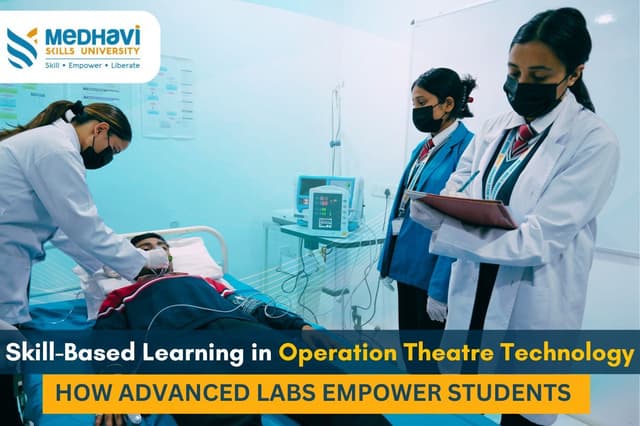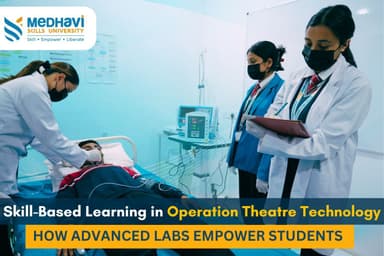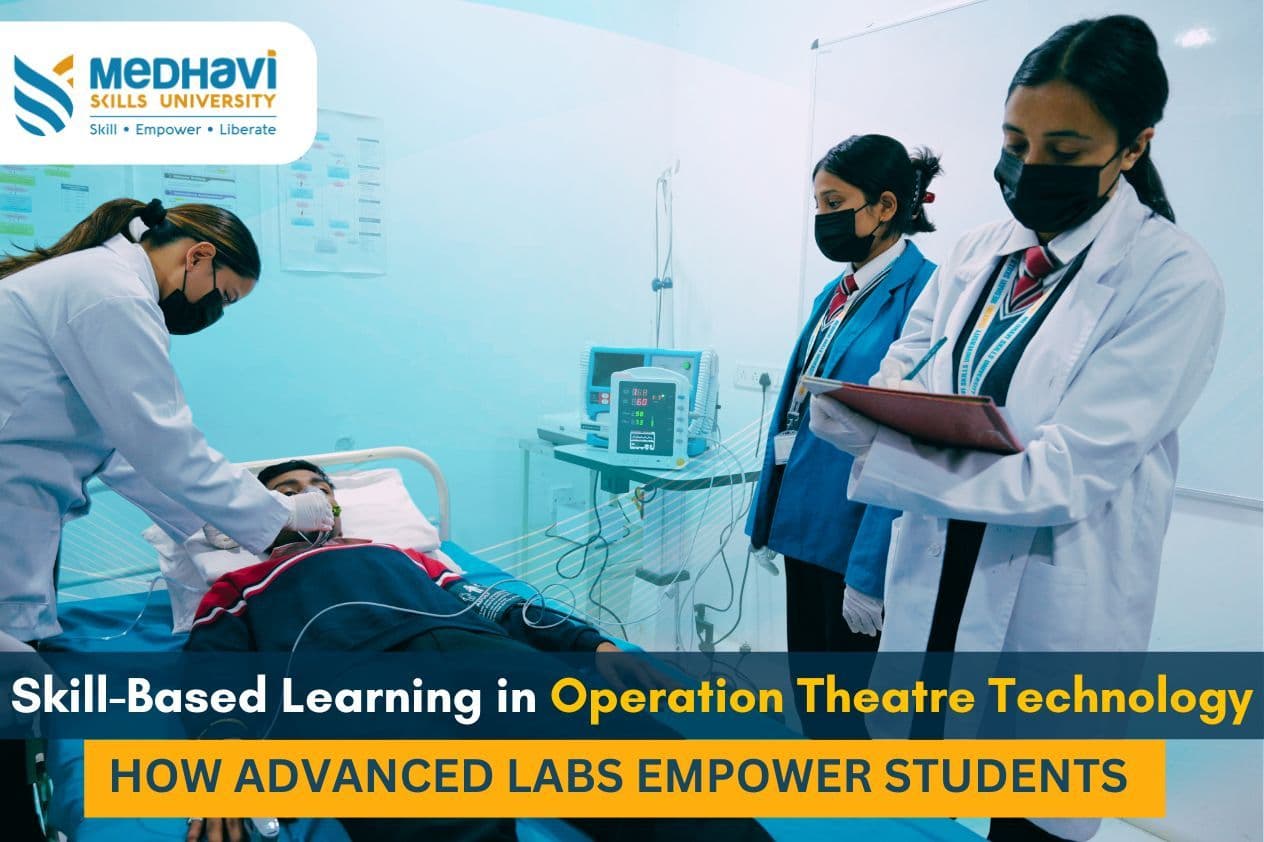Health care is often said to be the foundation of modern society and optometrists play an important role in protecting and promoting a vital human sense- the sense of sight. A Bachelor's degree in Optometry is a four-year undergraduate program that focuses on preparing students with the knowledge and skills to diagnose, manage and treat vision conditions. The professional degree consists of theoretical knowledge and education, clinical education, and skills training to ensure graduates exit ready to begin their careers in eye care. As vision impairment continues to rise throughout the world, there continues to be a demand for qualified optometrists. A Bachelor's degree in Optometry also offers diverse career pathways, excellent salary ranges, and opportunities for academic and professional growth. This blog explains what a Bachelor's degree in Optometry is; what career paths it provides, and why it is an attractive degree option for students interested in healthcare.

What is a Bachelor in Optometry?
A Bachelor in Optometry is an extensive course that educates students in the science of vision care, including areas like eye anatomy, optics, visual systems, and clinical diagnostics.
The program combines classroom study with practical clinical experience, allowing students to conduct eye tests, prescribe corrective eyewear, and diagnose eye illnesses such as glaucoma or cataracts. Among the World Health Organization's (WHO) total of 2.2 billion people globally with vision impairment, there are 1 billion cases that are treatable or preventable (WHO, 2023). This clearly indicates the significant need for optometrists. Optometry is rapidly developing in India, with the eye care market expected to increase to $3.9 billion by 2028 as a result of an aging population and increasing screen time (Market Research Future, 2024). The B.Optom course, in alignment with the National Education Policy (NEP) 2020, is focused on practical training through clinical rotations and internships, making graduates immediately employable.

Why Study Bachelor of Optometry?
Going for a B.Optom has many benefits, ranging from job security to international prospects. There is a number of reasons to contemplate the sustenance of this degree: Job security and demand: There are approximately 40,000 registered optometrists and demand in India exceeds 100,000 (All India Opthalmological Society, 2024).This shortage also ensures good employment opportunities in cities and villages.
- Competitive Compensation : Freshly graduated optometrists in India receive INR 3-6 LPA, whereas experienced ones, i.e., in private practice or as specialists, can receive INR 8-15 LPA (PayScale, 2025). Optometrists in the USA and Canada receive $80,000 - $130,000 annually.
- Global Opportunities : There is a huge demand for optometrists in countries such as Australia, the UK, and the Middle East, where lucrative positions and speedy visa procedures are available for Indian graduates.
- Career Flexibility : Optometrists have the flexibility to work in varied environments, such as hospitals, private practice, optical retail, or independently. Specialized certifications like Fellowships in Contact Lenses or Low Vision increase job prospects.
- Social Impact : Optometrists contribute positively to society by preventing avoidable blindness and enhancing the quality of life, following WHO's vision care objectives at the global level.
Job Opportunities Following a Bachelor in Optometry
A B.Optom can offer job options in a number of different areas in the eye care sector. Some of the main job roles include:
- Clinical optometrist: Provide eye examinations, prescribe contact lenses or glasses and diagnose conditions such as myopia and diabetic retinopathy. Salary: INR 4-8 LPA.
- Pediatric Optometrist: Work with children's vision, treating conditions such as amblyopia (lazy eye). Salary: INR 5-10 LPA.
- Low Vision Specialist: Assist patients with partial vision loss to enhance what little eyesight they have using adaptive devices. Salary: INR 6-12 LPA.
- Contact Lens Specialist : Prescribe and fit specialty contact lenses, such as therapeutic or cosmetic lenses. Remuneration: INR 5–9 LPA.
- Ocular Disease Consultant: Collaborate with ophthalmologists to deal with complicated eye diseases such as glaucoma. Remuneration: INR 7–15 LPA.
- Optical Retail Manager: Manage business in eyewear retail chains such as Lenskart or Titan Eye+, making INR 6–12 LPA.
- Freelance Consultant: Provide vision care on a freelance basis or tele-optometry platforms, making $30–$80 per hour internationally.
- Researcher/Academic: Teach or engage in research in optometry, creating new diagnostic equipment or medicines. Salary: INR 5–10 LPA.
- Entrepreneur : Start vision care businesses, including mobile eye care centers or AI-driven diagnostic platforms, taking advantage of the escalating demand for innovative eye care solutions.
Graduates can further study, for instance, a Master's in Optometry (M.Optom) or international certification like the American Board of Optometry, to become eligible for leadership positions or specialized practice.
International Career Opportunities for Optometrists
There is a need for optometrists beyond India.
In the USA, the Bureau of Labor Statistics anticipates a 9% increase in optometry employment between 2022 and 2032 due to an increasing population and growing eye care requirements.
Industries in Canada, Australia, and the UAE provide promising salaries and perks for Indian optometrists with immigration routes such as Canada's Express Entry simplifying relocation. Indian graduates who have clinical experience and certifications such as IELTS or OET can find employment in these areas.

Why Medhavi Skills University for a B.Optom?
Medhavi Skills University (MSU) in Sikkim is a leading provider of skill-based higher education in health care and has a Bachelor in Optometry program.
Here are some great reasons to consider enrolling:
- Industry Sharpened Curriculum: MSU's B.Optom professionals worked with major eye care practitioners to put together our program based on reports for willingness and coverage of current areas of study in clinical optometry, ocular diagnostics, and innovations in technologies that have implications of using artificial intelligence for vision care. It is in alignment with NEP 2020.
- Hands-On Training: Students become proficient through clinical internships in partner eye care centers and hospitals, practicing with instruments such as autorefractors, retinoscopes, and slit lamps.
- State-of-the-Art Infrastructure: MSU provides sophisticated optometry laboratories, vision simulation software, and exposure to the latest diagnostic machines, making students ready for the real world.
- Excellent Placement Opportunities: MSU's placement cell places candidates in leading employers such as Apollo Hospitals, Dr. Agarwal's Eye Hospital, international optical retail chains, etc., with high employability statistics.
- Holistic Development: The credit-choice system allows students to customize their learning while developing technical competencies and soft skills, e.g., empathetic communication, collaboration, etc.
Skills Gained Through a B.Optom
A B.Optom graduate gains a strong set of skills, including:
- Clinical Competence: Skill in performing eye examinations and vision disorder diagnosis.
- Technical Skills: Competency in using diagnostic equipment and vision analysis software.
- Patient Care: Good communication and empathy in handling patient requirements.
- Problem-Solving: Skills to develop customized vision correction treatments.
- Business Acumen: Competencies to start or manage private practices or retail businesses.
The Future of Optometry
The optometry profession is shifting with the advancement of technology, including AI-based diagnostics and tele-optometry. The tele-optometry market globally is estimated to record a CAGR of 17.8% from 2023 to 2030 (Grand View Research, 2024), providing new avenues for tech-enabled optometrists. In addition, government initiatives such as India's National Programme for Control of Blindness and Visual Impairment are creating more demand for competent professionals who are prepared to serve rural and ill-served communities.












